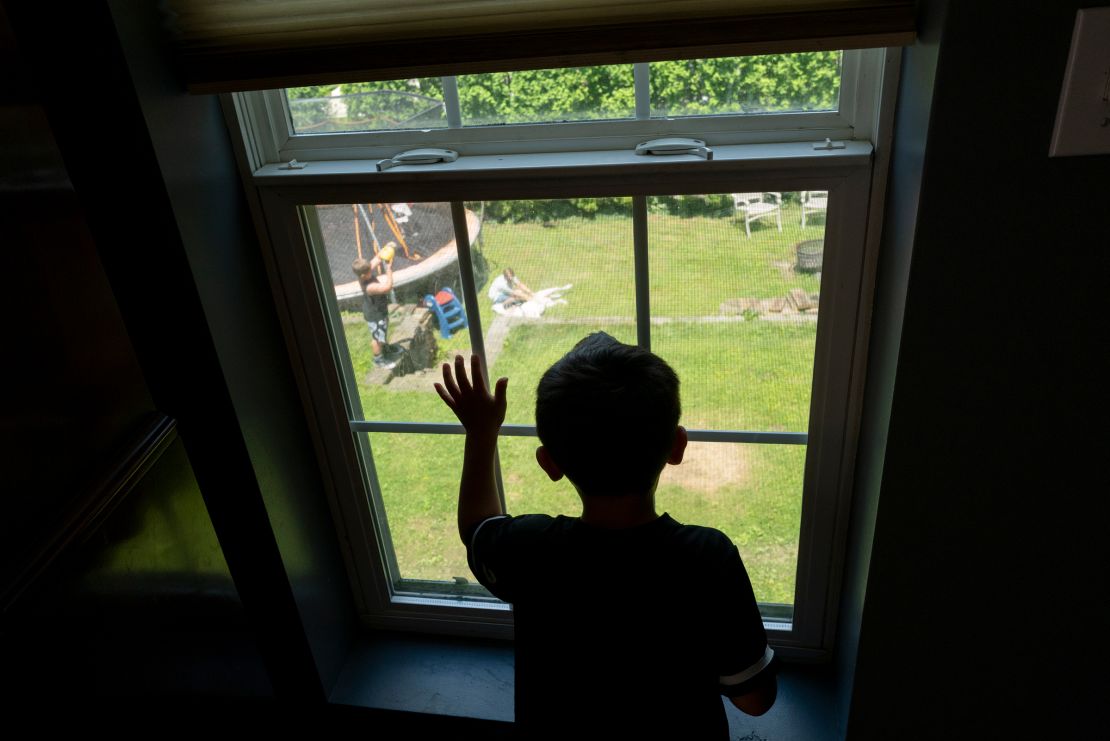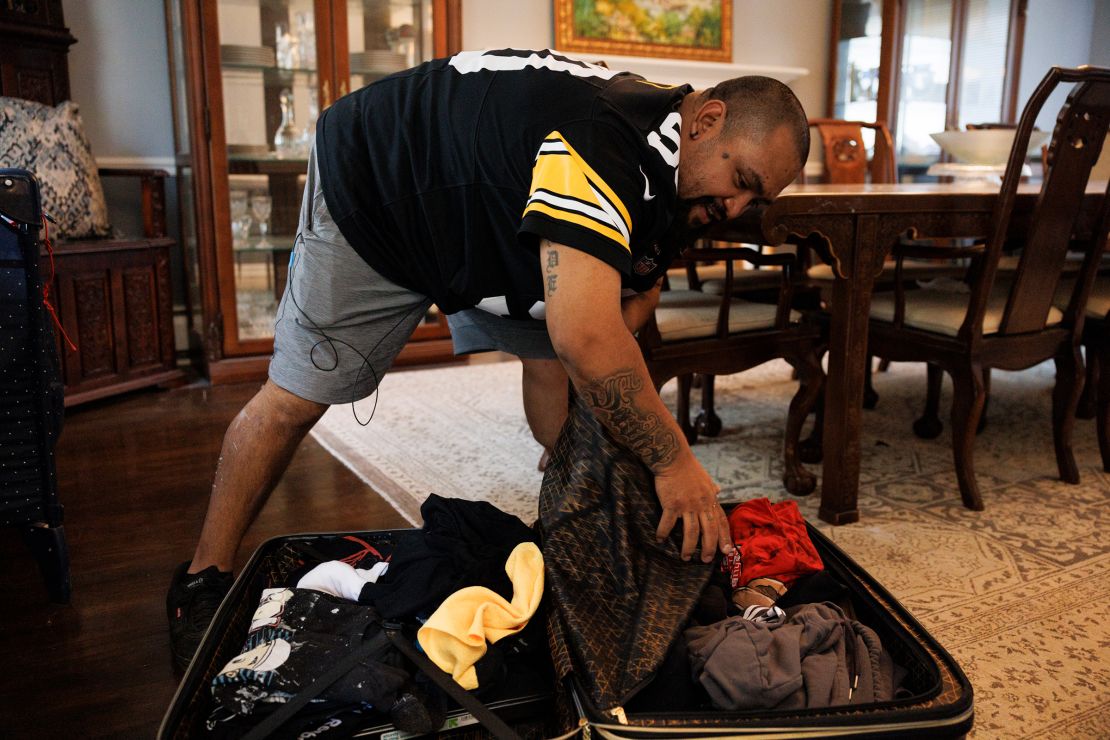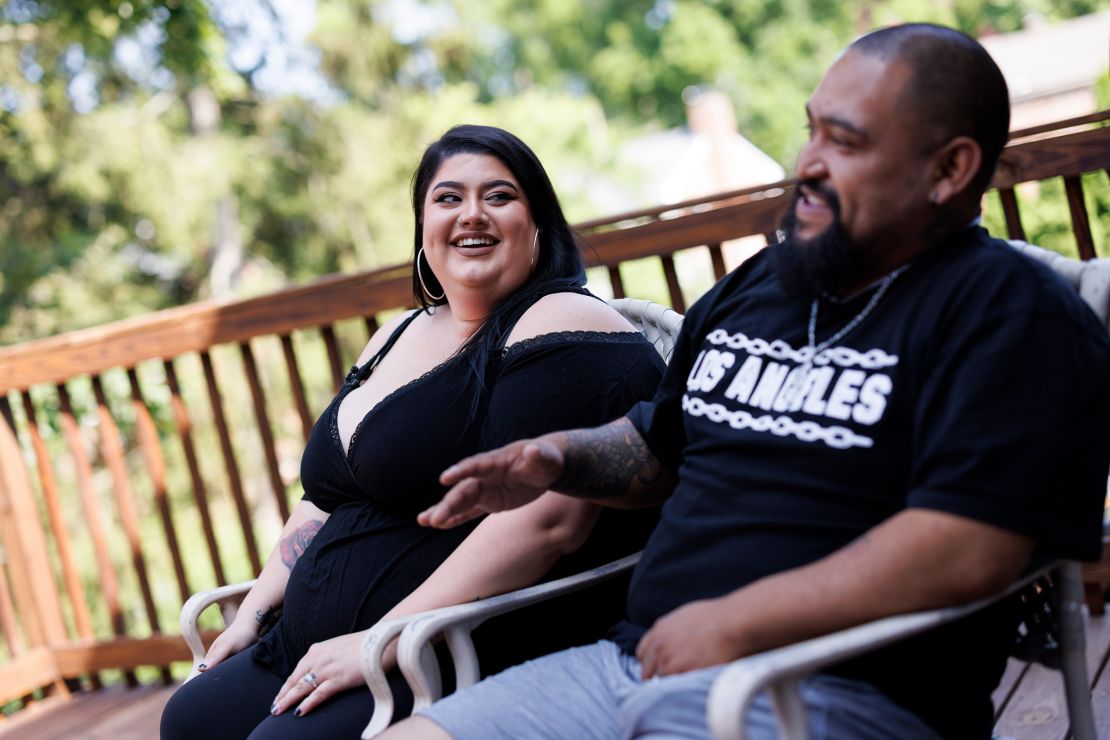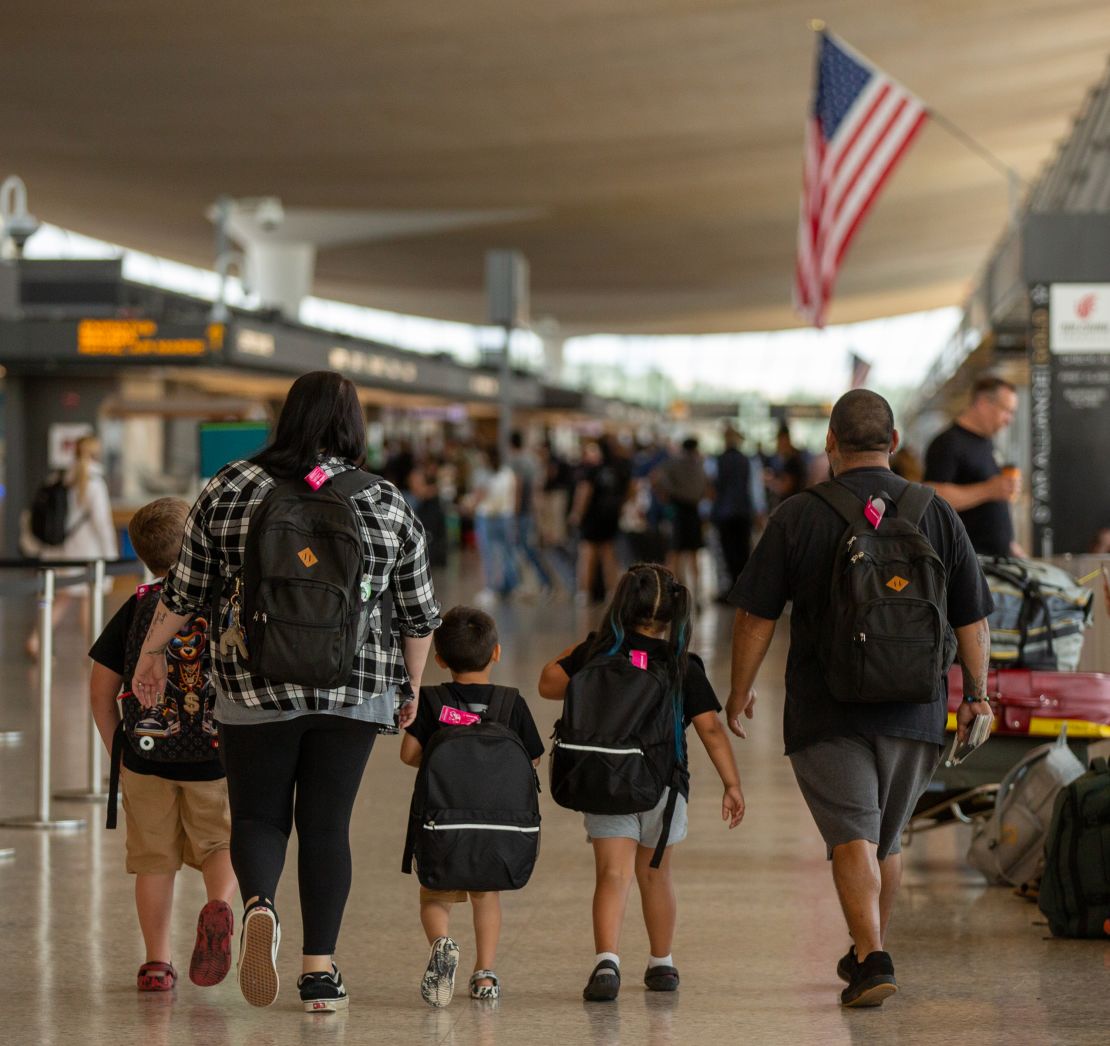Pittsburgh
CNN
—
Sasha and Julio Mendoza are saying goodbye to the United States for good.
But the decision didn’t come easily.
The two identify as Pittsburgh natives — arguably Julio more than Sasha, they joke, even though he arrived in the United States when he was 11 years old.
“When I first met him, his name on all his social media was ‘Mexican Yinzer.’ The first date he was like, all Steelers gear. It’s been like his entire personality,” Sasha said as they both laughed.
Julio is an undocumented immigrant from Mexico. Sasha and their three young children are US citizens. For seven years, they’ve navigated being a mixed-status household, but the return of President Donald Trump to office changed their plans.
“I’ve literally never felt anxiety the way that I have in the last few years here,” Sasha told CNN.
Trump campaigned on an aggressive and sweeping immigration enforcement agenda. Within hours of taking office, he signed dozens of executive orders cracking down on undocumented immigrants in the country.
“All illegal entry will immediately be halted, and we will begin the process of returning millions and millions of criminal aliens back to the places from which they came,” Trump said in his inaugural address.
Trump’s push prompted a question from Sasha to Julio: Was it time to leave?
“It was an executive order being signed. And that was her call first, like, ‘What do you think about moving to Mexico?’ And I said, ‘Honestly, at this point, yeah, let’s do it,’” Julio said.
Over the course of six months, Sasha, Julio and their children — ages 8, 5 and 4 — began winding down their life in Pittsburgh, including packing up their home, weighing plans for their local construction business, and researching life in Mexico.


The family of five now joins a newly emerging community of people who have chosen to voluntarily depart the United States, fearful of the potential consequences they’d face if they stayed in the country without legal status.
Senior Trump officials have repeatedly touted self-deportations — part of a broader effort to ramp up the number of undocumented immigrants leaving the United States. That push has included a multimillion-dollar ad campaign telling people to “leave now”; retooling a US Customs and Border Protection app to facilitate self-deportations; and offering money to those who depart.
But it’s not just people who are undocumented taking the leap. Some US citizens, like Sasha and her three children, have opted to leave with their spouses.
Julio, 32, crossed the US-Mexico border when he was 11 years old at the urging of his mother. He was amazed when he arrived in Pittsburgh to live with his parents.
Taking in the city and the towering buildings, Julio described thinking: “This is the American dream they’re talking about. This is what I came here for.”
It didn’t dawn on him that he was in the US with no papers until his teenage years, when he tried seeking a higher education, hoping to pursue a career in pediatrics. That, he says, shifted his plans, and he eventually landed in construction. But his love for Pittsburgh remained strong, he said, touting a book he purchased on how to speak Pittsburghese, learning the city’s history, and becoming a die-hard Steelers fan.
Then, in 2018, he met Sasha, now 30. The two instantly fell for each other.

“I don’t know if he just didn’t want to lead with that because it’s a weird thing to lead with and I didn’t want to ask because it is a weird thing to ask, so we kind of were mentioning it without mentioning it,” Sasha recalled, when asked about whether Julio’s undocumented status came up while dating.
“At one point, he ordered a drink, and he asked for extra ice and I said, ‘No, we don’t do ice here,’” she said. And that was that.
Seven years later, the two have rarely left each other’s sides.
Over the years, they’ve been forced to navigate life in the United States as a mixed-status household. People who enter the US illegally, like by crossing the southern border, generally face additional barriers to obtaining citizenship — and there are often limitations to their ability to get it. Sasha and Julio consulted attorneys, but there didn’t appear to be a path for him to obtain citizenship despite being married to a US citizen.
Though they had previously discussed a future in Mexico when their kids were older, the new administration fast-tracked their plans.
“It’s not even the risk of deportation … because it was a risk during Obama and it was a risk during Biden that he would be deported and honestly, at that point, we had already come to terms with that,” Sasha said.
“The fear is no longer being deported; the fear is being attacked while we’re still here or our kids being pulled out of school or him not coming home from work. And then if he does get picked up, it’s being taken to a detention center and us never knowing about it,” she added.
“There are no limits,” Julio said.
They were confronted with their worst nightmare when Kilmar Abrego Garcia, a Salvadoran national who was residing in the US, was mistakenly deported to a notorious mega-prison in El Salvador. While Julio and Abrego Garcia have different backgrounds, in appearance, they look similar — and Abrego Garcia’s wife is also a US citizen.
“I can see myself in that, and I don’t want us to wait until we’re in the same situation,” Sasha said.
But departing for Mexico without Sasha was a nonstarter for both her and Julio.
“Everything we do, we do together, and we always make the best out of it,” Julio said.

This year, their wedding anniversary coincided with their goodbye party in Pittsburgh. A steady stream of friends and family flowed through Sasha’s childhood home. Tears and laughter filled the space, as their children, along with their young cousins, zig-zagged through each room, chasing each other.
The family’s suitcases sat by the front door, a reminder of what was to come.
Sasha and Julio are not alone. Other people considering making the jump to leave the United States — or who already have left — have emerged online, sharing their stories on TikTok. In short clips, they swap tips on how to set up life in a new country and recall what prompted them to depart.
“It was like, let me learn through your experience instead of waiting until it happens to me as well,” Sasha said, describing the TikTok community she found. “I’ve gotten so much information from them like the smallest things, like how to set up internet in your house to what’s the process to get residency.”
The Trump administration has been running a self-deportation campaign — taking to the airwaves and launching a US Customs and Border Protection app to encourage people to voluntarily depart the country. They’ve also offered financial incentives. In May, the Department of Homeland Security conducted a charter flight carrying 64 individuals who chose to self-deport to their home countries of Honduras and Colombia.
It’s an effort that Trump often touts.
“A lot of self-deporting,” he said during a trip to Florida to visit a new immigrant detention center.
Hours of research behind them, the Mendoza family departed the US on June 28 with a one-way ticket to Mexico City. It’s a decision they didn’t take lightly, but they saw it as the only choice.
“Rolling a dice will be staying here. That would be rolling a dice. Playing with my life, playing with my kids’ life, play with my wife’s life. That would be a gamble,” Julio said. “I’m taking a certain win on this one for sure. Definitely a certain win in the sense of back to the roots, back to the family for once after 20-some years. And I get to bring my own family, my own history, my own dream, my own story.”








